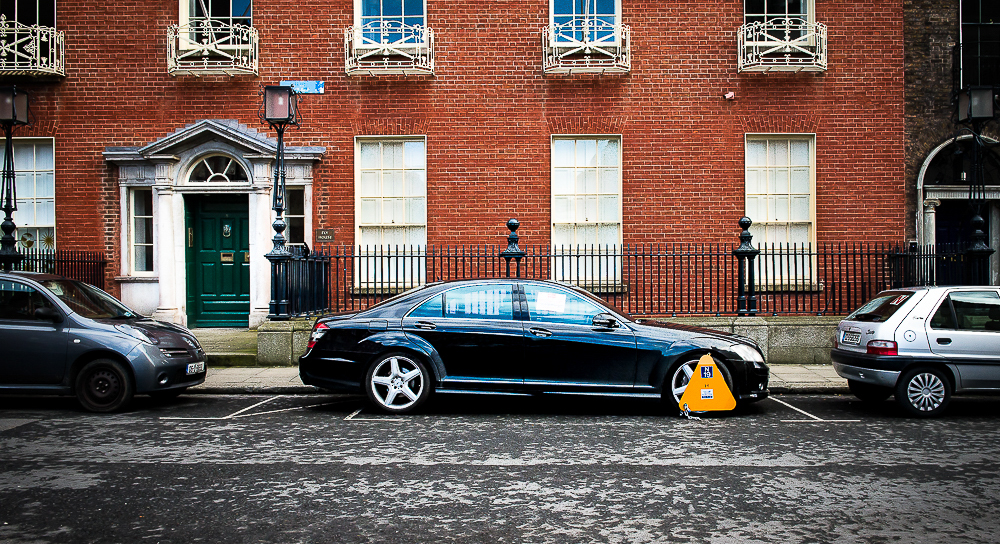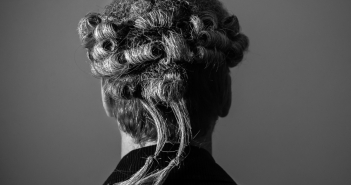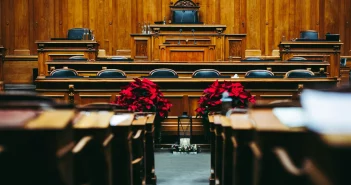Harry Gleeson was wrongfully hanged for the murder of Moll McCarthy in 1941, and fully exonerated in 2015 after the case was re-investigated by the Innocence Project in Ireland.[i] Gleeson was framed by the police, with the collusion of elected representatives, for the murder of Moll McCarthy, by reputation a ‘lady of the night.’
There followed what amounted to a show trial in which the judge and prosecution barrister concealed evidence, and conducted proceedings in a wholly inappropriate manner. On the eve of his execution Gleeson met his junior counsel Seán MacBride who, expecting an admission of guilt, instead was confronted with an assertion of innocence and plea that one day his name should be cleared.
McBride was moved, and thereafter, having served as Minister for External Affairs between 1948 and 1951, campaigned against the death penalty. He was instrumental in setting up Amnesty International, for which he ultimately received the Nobel and Lenin peace prizes.
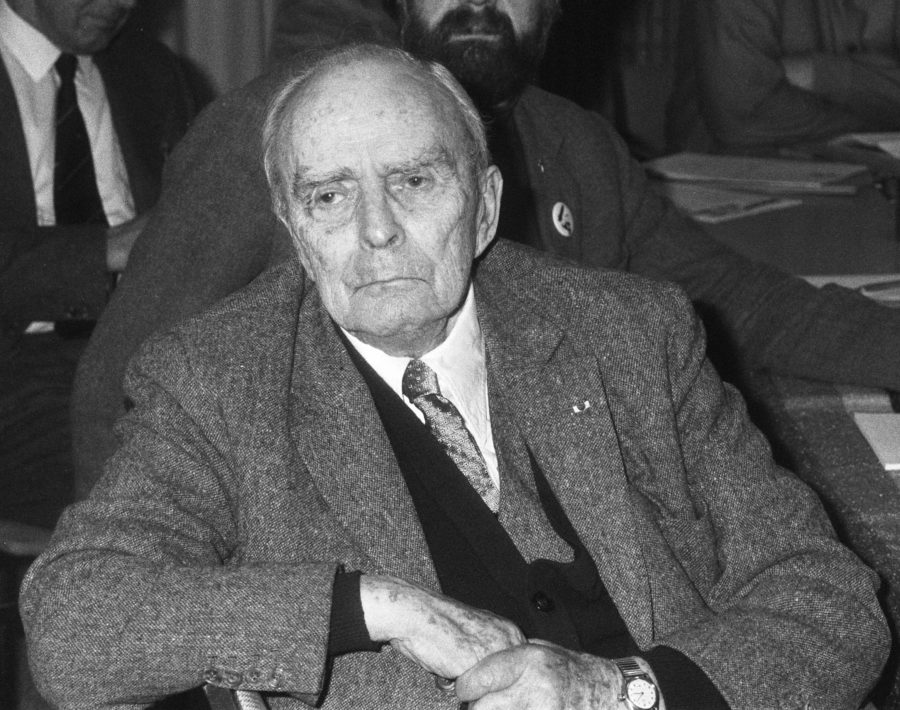
Sean MacBride in 1986
That case betrays the closed nature of Irish society in the 1940s. But with pervasive patterns of corruption, apparent state criminality, including targeting of individuals, can we say governance today has improved? The late Supreme Court Justice Adrian Hardiman gave a disturbing account of the conduct of ‘the force publique’ over the past number of years in his dissenting judgment in DPP v JC (2015)[ii], citing a former President of the High Court to the effect that ‘proper discipline has been lost from An Garda Síochána.’
If anything, state-sponsored illegality may be worse than ever. Recently our police force, perhaps in collusion of Tulsa and the Department of Justice, subjected an innocent man, Garda Maurice McCabe, who was perceived as a threat, dissident or whistleblower, to an horrendous allegation of child sex abuse.
Rather than being pensioned-off, high-ranking Gardaí and their lawyers, should be brought before a court capable of identifying a new species of crime, as occurred at Nuremberg after World War II. Framing people for abuse or murder is no ordinary offence, but amounts to a Crime against Humanity by agents of the state, a breach of an obligation ergo omnes, offending fundamental principles of Natural Law, and universal human rights.
The crucial point about framing people for sex abuse, or indeed state-sponsored murder, is that it fatally undermines the integrity of the justice system. When the gatekeepers are themselves criminal, as was the case in Nazi Germany, or in Serbia under Milosevic, it erodes trust in government, and any sentencing should take into account this profoundly aggravating factor.
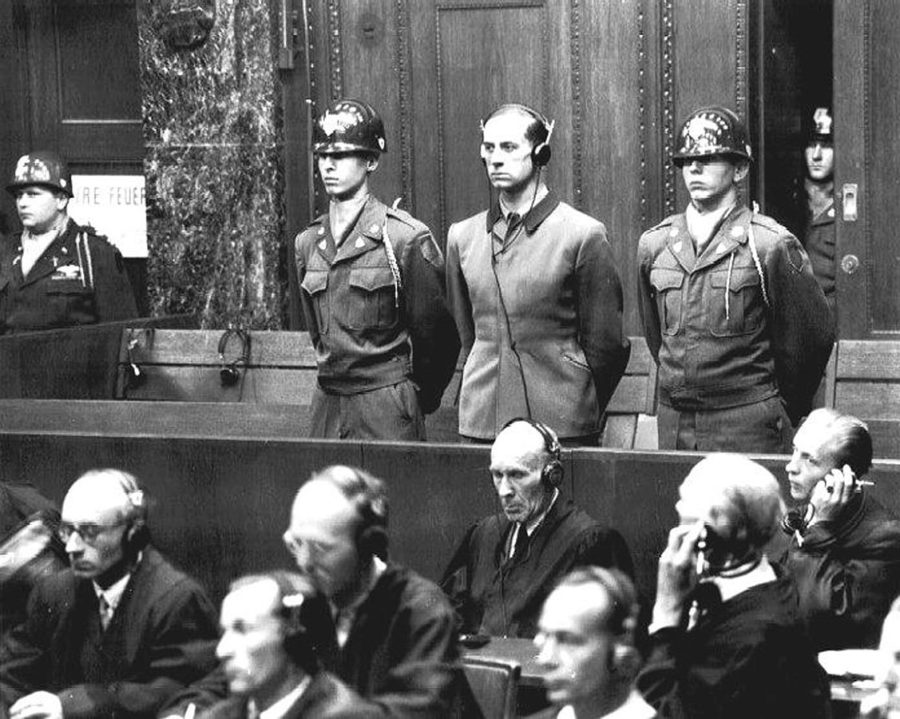
Nuremberg Trials, 1946. Crimes Against Humanity.
Radbruch’s formula
In this context, it is notable (in Streletz v Krenz ECtHR, 2001[iii]) that East German Border Guards were retroactively convicted for shooting people as they escaped over the Berlin Wall; even though, at that stage, they could argue that they were merely complying with commands.
The German Constitutional Court and indeed the European Court of Human Rights utilised the great anti-Nazi German jurist Gustav Radbruch’s formula that positive law must always yield to fundamental principles of morality. Any law compelling servants of the state to shoot fellow citizens – in circumstances where clear threats to public safety are absent – does not comply with fundamental principles of justice.
The defence of following orders, which the Nazi official Adolf Eichmann had offered at his trial in Tel Aviv in 1961, is not available. Evil is evil, no less so for being the banal plea of a bean counter that he was merely putting people on trains. Perhaps we may one day also hear: ‘I was only doing my job working for Goldman Sachs.’
Kenya
In Kenya, my client Mr. Kimani has been on death row for seventeen years. While still a teenager he was caught on the same bus as where a brutal crime was being committed. Thereafter, he stopped at a restaurant and was arrested, brutalised and charged.
During the ensuing trial he was provided with sub-standard representation (too mildly referred to as ‘ineffective assistance of counsel’) and, despite no meaningful evidence, the judge directed a decision of guilt, violating the presumption of innocence, which Lord Sankey described as ‘the golden thread of the common law’, in Woolmington v. D.P.P (UKHL, 1935). Thus his youth has bee snatched away after seventeen years on death row, prior to the ongoing intervention of the Innocence Project.
My involvement came about after Elizabeth Kimani, a former student, visited me in Griffith College, where I taught at the time. She had just returned from Kenya, after a break of many years, where she had attended her sister’s funeral. There she discovered her nephew’s plight. She requested my assistance, and I consented after some deliberation. This resulted in a trip to Kenya accompanied by Michael Gallagher, a student caseworker, to present submissions to the then recently constituted Committee of Mercy in Nairobi, under the elegantly named, but dubiously relevant Power of Mercy Act, 2011.
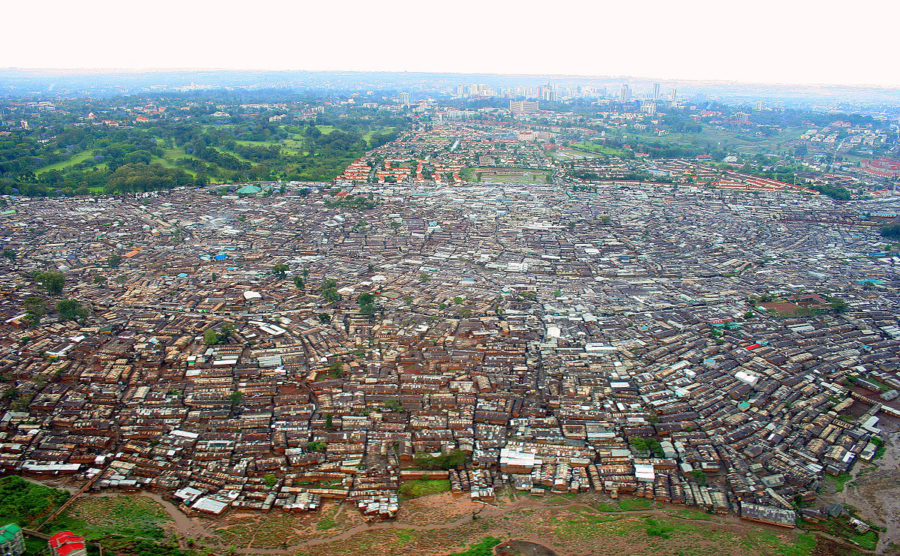
Nairobi, Kenya
I arrived in Nairobi with a degree of trepidation, having heard it is the seventh most dangerous city on Earth. Thankfully, I was greeted by a waiting guide, who provided an armed guard and armour-plated vehicle to chaperone us through teeming streets to the secure sanctuary of the Stevroy Stanly Hotel. There followed a pause for breath, a quick shower, and then another three hour journey through the Rift Valley to Naivasha prison, perhaps the most hostile prison in all of Africa.
When Michael and I arrived we were kept waiting for another three hours before the scheduled meeting with the Committee of Mercy took place in a small dark waiting area. It was no more than the size of a large kitchen, and contained at least ten prison guards in combat uniforms, who floated in and out with sub machine guns poised for action. At the end of what I think a not accidental ordeal, the hearing, which again took over three hours, was conducted in a packed room in circumstances of polite formality, but underlying hostility.
The runes and smoke signals of an altogether different culture are difficult to interpret, but age and professionalism masked my nervousness. I proceeded to point out the utter improbability of my client having any involvement in the crime, with the aid of a clearly traumatised but remarkably articulate client, who despite being downtrodden was secure in his plea of innocence.
Second Visit
Circumstances beyond my control compelled a return flight the following day, but a second appearance over the summer was finally agreed. The issues of the original case were re-ventilated, including victim impact reports. The relatives of the crime were also allowed to express their distress, which had no bearing at all on the guilt or innocence of my client.
Long hours passed before I requested a break for coffee and a cigarette: ‘Of course sir, please come this way’, I was told. I was then led through security checkpoints down from the sixth floor we were on, and driven half a mile up the road to the top floor of another building, where a dusty annex of a bar served as a smoking area.
President Kenyatta had in fact banned smoking in all public places in Kenya and, I was informed by a senior government official that two American tourists had actually been arrested for lighting up in a public building the previous day. At the time the social impact of the crime of smoking in a public building seemed almost humorous to me by comparison with the distortion of justice inflicted on Mr Kimani.
After this diversion, the Committee of Mercy asked me to draft a supplemental set of submissions, addressing a section that had not attracted attention. It enquired, notwithstanding my client’s innocence, whether he could fend for himself on the outside. This reflects recent trends in the administration of justice, symptomatic of a neo-liberal tendency to apportion human rights according to economic status, an evolution in the direction of homo economicus, on which more later.
Since then there has been silence out of Kenya: reconstituted committees, dithering, managing of the message and now a power vacuum, during which Kenya has had no government, after an invalidated election. The fate of Mr. Kenyatta and his government, and by extension Mr. Kimani, hangs in the balance. So I await the long deferred outcome, more in hope than expectation.
Born Free
Thereafter I took a brief safari to see what wild animals survive, and encountered the wonderful Lake Naivasha. I also visited the former house of the writer of Born Free, Joy Adamson, and her husband, both of whom had been murdered by local vigilantes for their outspoken views. On both trips an informative guide issued a series of coded warnings.
That very day, he said, the country’s most prominent human rights lawyer had been murdered at the behest of the government. He warned that our activities had attracted their attention too, and our movements were being monitored, a situation not altogether unfamiliar to me in Ireland. Aside from the pleasure of discovering the National Museum, and a truly fabulous flea market, it was with some relief that I boarded my plane out of the country, landing in another country with a Third World legal system: Ireland.
Flying back, I was deeply unsettled by the outrage perpetrated on Mr Kimani, and the sinister weighing of his life post-release in terms of his economic status. I also dwelt on the murder of the human rights lawyer, and the desperate plight of wildlife, which constitutes ecocide. A light bulb went off in my mind, as I saw a common systemic source for all this injustice.
I consider Goldman Sachs, along with certain other multinational corporations to be war criminals, as they have perpetrated Crimes Against Humanity and universal breaches, ergo omnes, of economicide and ecocide. Ruthless economic exploitation and environmental destruction work hand in hand. So let us convene a virtual reality Nuremberg hearing, a new International Criminal Court directed against the corporate criminals of the New World Order.
It must remain a virtual for the moment as the perpetrators now manipulate the machinery of the state, but the wheels of justice keep on turning. Our Earth is in constant motion too, but humanity is playing its final rounds on a doomsday roulette wheel.
Corporate criminals who design and profit from the excesses of human exploitation should be brought before international tribunals, along with those who would callously consign people to fend for themselves after unlawful incarcerations. At least, with the help of the Innocence Project in the US, after his exoneration Sunny Jacobs secured a measure of compensation, allowing her to open the Sunny Jacobs Centre on the not altogether sunny west coast of Ireland.
Meanwhile, as U.S. Republicans luxuriate in destroying the welfare and administrative state, and a plutocracy attempts to secede from humanity, building safe havens against Climate Change, and boltholes in distant outposts, Mr. Kimani sees his life ebb away in the worst prison in Africa. We must hope the Committee of Mercy reconvenes quickly, and at least the stain of that singular injustice will be washed away, as, to quote Shakespeare’s Portia.
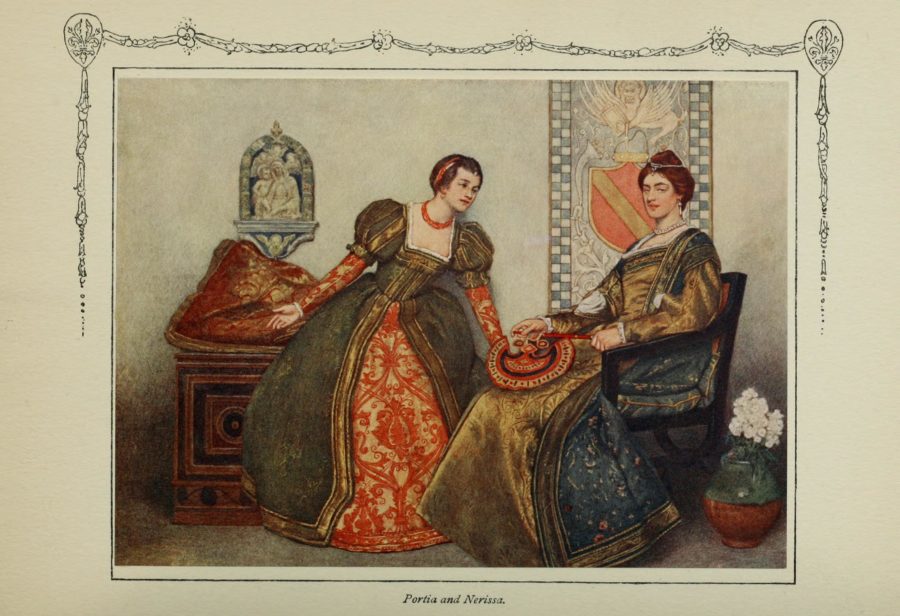
Shakespeare’s Portia.
The quality of mercy is not strain’d,
It droppeth as the gentle rain from heaven
Upon the place beneath: it is twice blest;
It blesseth him that gives and him that takes:
‘Tis mightiest in the mightiest: it becomes
The throned monarch better than his crown;
His sceptre shows the force of temporal power,
The attribute to awe and majesty,
Wherein doth sit the dread and fear of kings;
But mercy is above this sceptred sway;
It is enthroned in the hearts of kings,
It is an attribute to God Himself;
(The Merchant of Venice, Act 4, Scene 1)
At the same time we demand a broader interpretation of justice, with humanity on the brink of extinction: at current rates of degradation to top soil we have sixty years of agriculture remaining.[iv]
As three-term former U.S. President Franklin Delano Roosevelt (1882-1945) put it: ‘A nation that destroys its soils destroys itself. Forests are the lungs of our land, purifying the air and giving fresh strength to our people.’[v] We require a new Nuremberg for Crimes Against Humanity and Nature, evolving our understanding of mercy and justice, “above this sceptred sway.”
Crimes Against Humanity
I recently visited Chartwell House, once the permanent residence of perhaps the greatest politician to have ever lived: Winston Churchill. To paint him as a latter-day saint would be wide of the mark, but to a large extent it was his conviction that Nazism was a distinct barbarism that ultimately led to the Nuremberg trials.
In the wilderness years before World War II he was indeed a Cassandra voice. But any rush to judgment of our latter-day war criminals must be tempered with deliberation, thereby avoiding Herman Goering‘s charge at Nuremberg that ‘the victor will always be the judge and the vanquished the accused.’[vi]
In Roy Jenkin’s view Winston Churchill was the greatest prime minister of Britain, and I would concur. But tell that to soldiers annihilated at Gallipoli or civilians firebombed in Dresden. He too was directly or indirectly implicated in Crimes against Humanity.
It tends to be the little people who suffer, and away from abstract theorising, I will continue to lobby for the release of Mr Kimani. But let us still convene an International War Crimes Tribunal of the righteous holding to account corporate criminals, who endeavour to secede from the rest of humanity by retreating into gated enclosures.
An indictment can proceed from their own memoirs, as such characters are generally shameless. Let them bear witness to their depredations, and let us signal to posterity our opposition to their infamy, for as the Czech novelist Milan Kundera attested the loss a historical memory involves a failure to confront tyranny.
By drawing attention to their criminality, future generations may adapt, before it is too late for the natural world, and perhaps the likes of Mr Kimani may yet be welcomed back into society. Alas it is too late for Harry Gleeson, but at least he now may rest more peacefully.
[i] Erin McGuire, ‘How Harry Gleeson was wrongly hanged for murder in 1941’, Irish Times, 6th of April, 2015, https://www.irishtimes.com/news/crime-and-law/how-harry-gleeson-was-wrongly-hanged-for-murder-in-1941-1.2165731, accessed 22/11/18.
[ii] DPP v JC, Judgment by Hardiman J., [2015] IESC 31, http://courts.ie/Judgments.nsf/bce24a8184816f1580256ef30048ca50/285b25317187412480257e280050f5b4?OpenDocument, accessed 22/11/18.
[iii] Streletz, Kessler and Krenz v. Germany, ECtHR, 2001, http://hudoc.echr.coe.int/eng?i=001-59353, accessed 22/11/18.
[iv] Chris Arsenault, ‘Only 60 Years of Farming Left If Soil Degradation Continues’, Scientific American, https://www.scientificamerican.com/article/only-60-years-of-farming-left-if-soil-degradation-continues/, accessed 14/11/18.
[v] Untitled, ‘11 Forest Facts and Quotes to Tweet or Share’, April 20th, 2015, Worldwide Fund for Nature, https://www.worldwildlife.org/stories/11-forest-facts-and-quotes-to-tweet-or-share, accessed 22/11/18.
[vi] Gary Jonathan Bass, ‘Stay the Hand of Vengeance: The Politics of War Crimes Tribunals’, October 29th, 2000, The New York Times, https://archive.nytimes.com/www.nytimes.com/books/first/b/bass-vengeance.html, accessed 22/11/18.

